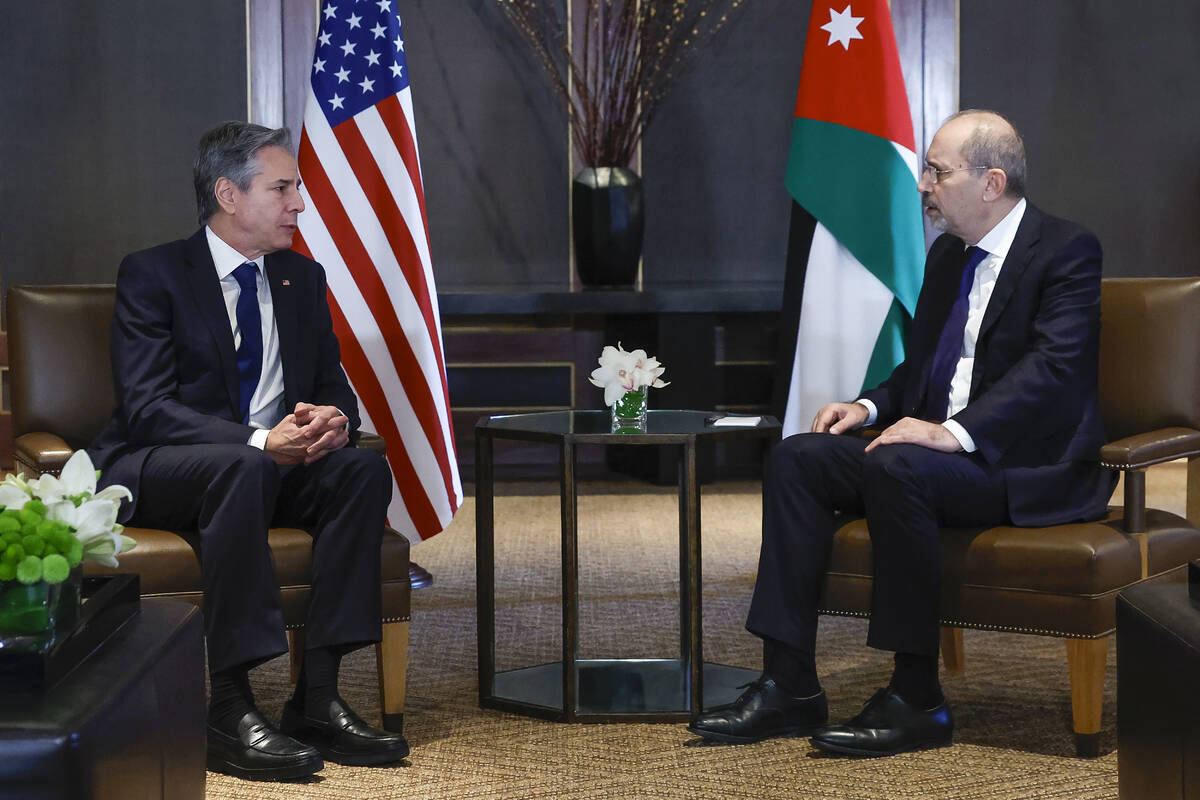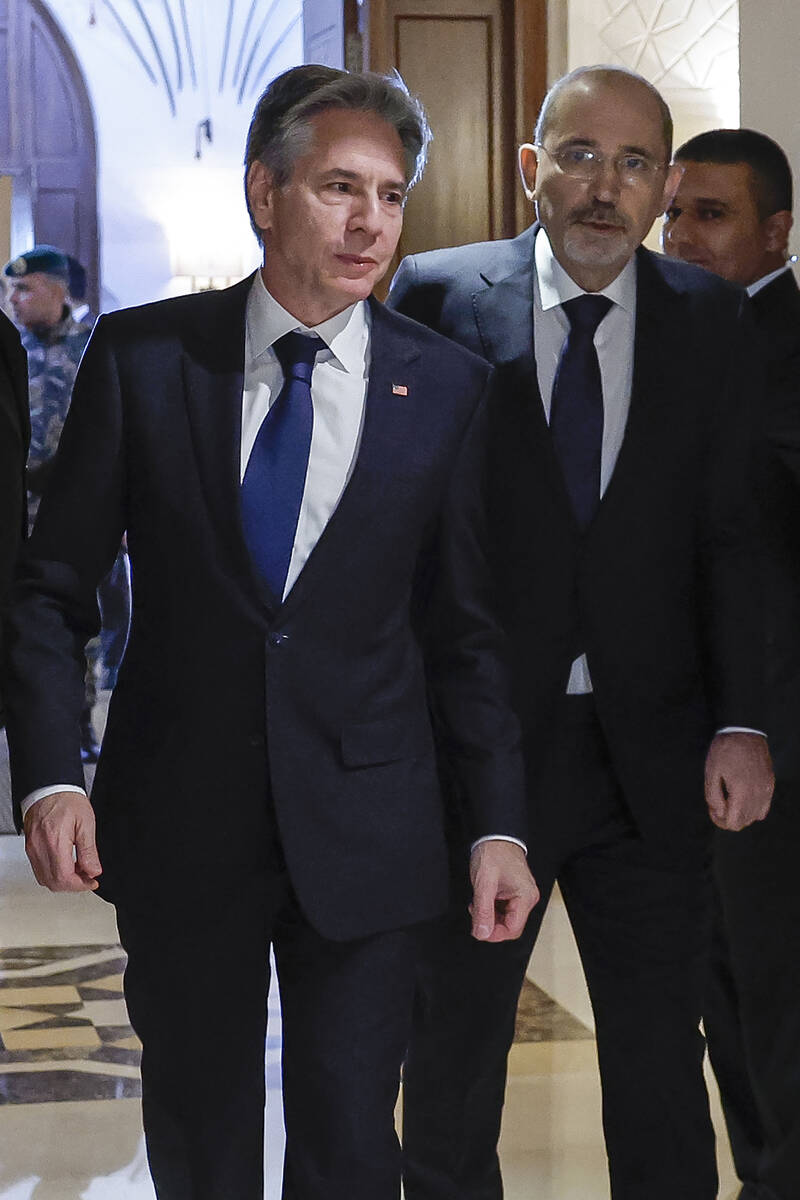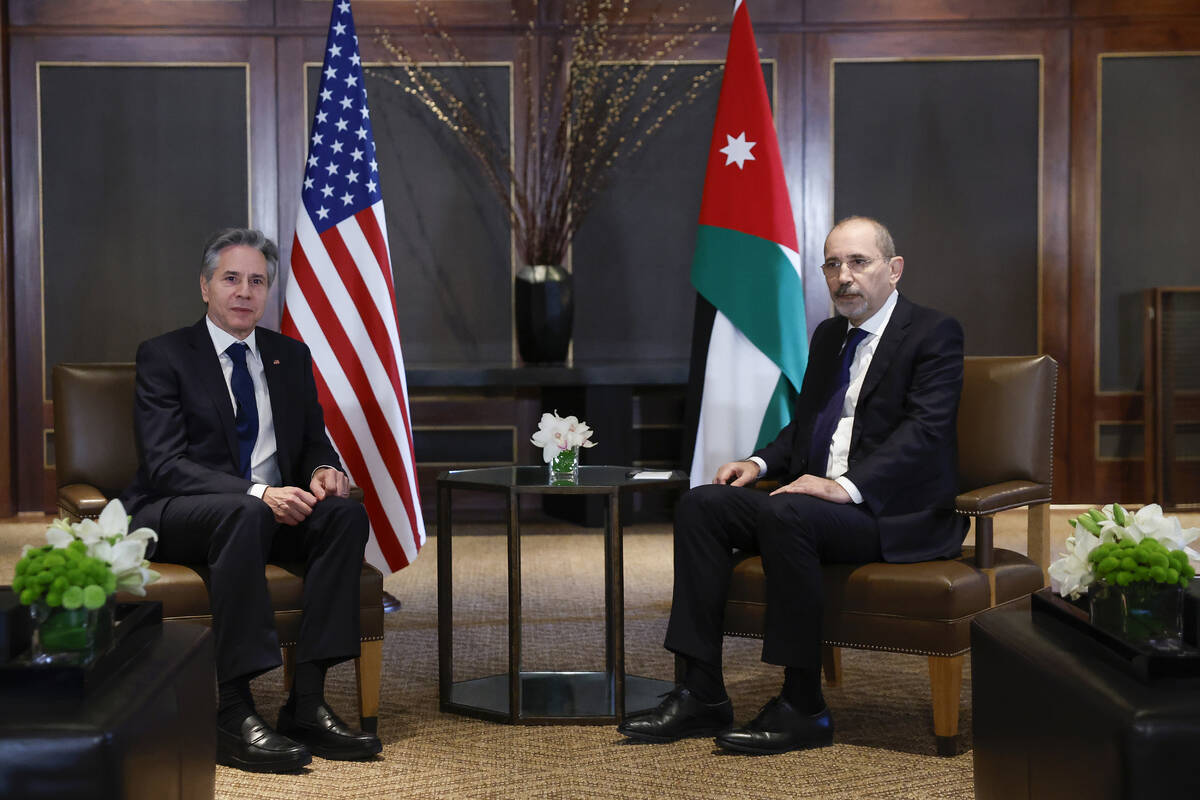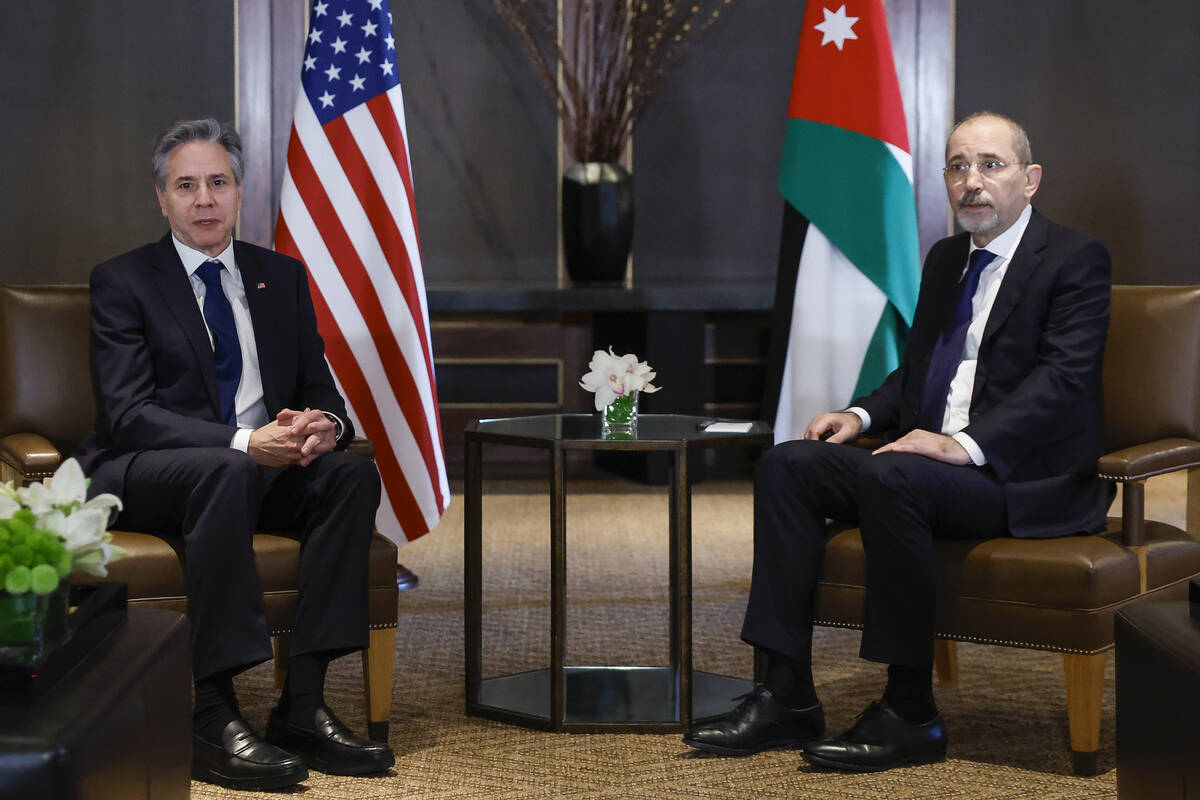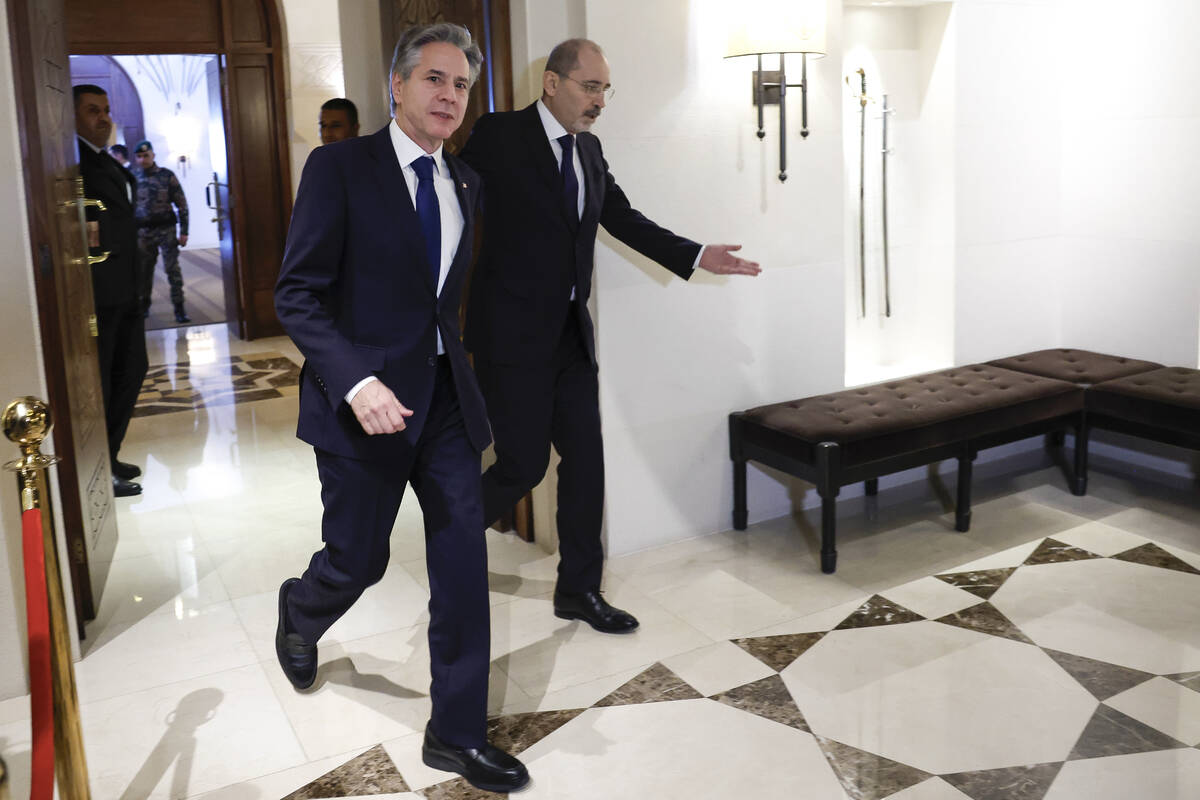Blinken meets Jordanian and Qatari leaders on new push to keep war from spreading
DOHA, Qatar — On another urgent diplomatic mission to the Middle East, Secretary of State Antony Blinken met Sunday with Arab partners to press for their help in tamping down resurgent fears that Israel’s three-month war against Hamas in Gaza could spread.
In discussions with Qatar’s emir and Jordan’s king, Blinken spoke of the need for Israel to adjust its military operations to reduce civilian casualties and significantly boost the amount of humanitarian aid reaching Gaza, while stressing the importance of preparing detailed plans for the post-conflict future of the Palestinian territory.
The mission — that will also take him to the United Arab Emirates, Saudi Arabia, Israel, the West Bank and Egypt before he returns to Washington — is Blinken’s fourth to the region since the war began.
After a day of talks with Turkish and Greek leaders in Istanbul and Crete, Blinken met with Jordan’s King Abdullah II and Foreign Minister Ayman Safadi in Amman before traveling to Doha for talks with Qatari Emir Sheikh Tamim bin Hamad Al Thani to seek buy-in for U.S. efforts to tamp down resurgent fears that the war could engulf the region, ramp up aid to Gaza and prepare for an eventual end of hostilities.
King Abdullah “warned of the catastrophic repercussions” of the war in Gaza while calling on the U.S. to press for an immediate cease-fire, a statement from the Royal Court said.
State Department spokesman Matthew Miller said Blinken and the monarch agreed to continue close coordination on getting sustained humanitarian assistance to Gaza.
Jordan and other Arab states have been highly critical of Israel’s actions and have eschewed public support for long-term planning, arguing that the fighting must end before such discussions can begin. They have been demanding a cease-fire since mid-October. Israel has refused and the U.S. has instead called for specified temporary “humanitarian pauses” to allow aid to get in and people to get to safety.
In Amman, Blinken also toured the World Food Program’s regional coordination warehouse, where trucks are being packed with aid to be delivered to Gaza through both the Rafah and Kerem Shalom crossings.
He commended the work of the WFP and other U.N. agencies as well as the government of Jordan to get assistance into Gaza.
“The efforts right here to collect and distribute food to people in need are absolutely essential,” Blinken said. “The United States has worked from day one to open access routes into Gaza.”
“We continue to work on that every single day, not only to open them but to multiply them, to maximize them and to try to get more assistance, more effectively,” he said. “We’re determined to do everything we possibly can to ameliorate the situation for the men, women and children in Gaza.”
The U.S. has been pressing Israel for weeks to let greater amounts of food, water, fuel, medicine and other supplies into Gaza, and the U.N. Security Council passed a resolution on Dec. 22 calling for an immediate increase in deliveries. Three weeks ago, Israel opened Kerem Shalom, adding a second entry point for aid into Gaza after Rafah.
Still, the rate of trucks entering has not risen significantly. This week, an average of around 120 trucks a day entered through Rafah and Kerem Shalom, according to U.N. figures.
In Greece on Saturday, Blinken said his trip would be dominated by “not necessarily easy conversations” with allies and partners about what they are willing to do “to build durable peace and security.”
Blinken’s visit comes as developments in Lebanon, northern Israel, the Red Sea and Iraq have put intense strains on what had been a modestly successful U.S. push to prevent a regional conflagration since Hamas terrorists attacked Israel on Oct. 7.
“These are not necessarily easy conversations,” he said in Greece. “There are different perspectives, different needs, different requirements, but it is vital that we engage in this diplomacy now both for the sake of Gaza itself and more broadly the sake of the future for Israelis and Palestinians and for the region as a whole.”
He said his priorities are protecting civilians, getting more humanitarian aid into Gaza, ensuring Hamas cannot strike again, and developing a framework for Palestinian-led governance in the territory and “a Palestinian state with security assurances for Israel.”
Hours before Blinken’s meetings on Saturday, Lebanon’s Iran-backed Hezbollah militia fired dozens of rockets at northern Israel and said the barrage was an initial response to the targeted killing, presumably by Israel, of a top leader from the allied Hamas group in Lebanon’s capital this past week. Israel responded in what became one of the heaviest days of cross-border fighting in recent weeks.
Meanwhile, stepped-up attacks on commercial shipping in the Red Sea by Yemen’s Iran-backed Houthi rebels have disrupted international trade and led to increased efforts by the U.S. and its allies to patrol the vital commercial waterway and respond to threats.
The coalition of countries issued what amounted to a final warning to the Houthis on Wednesday to cease their attacks on vessels or face potential targeted military action. Since Dec. 19, the terrorists have carried out at least two dozen attacks in response to the Israel-Hamas war.



